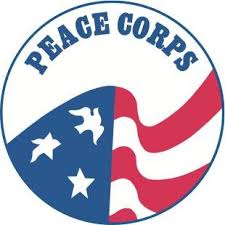Former RPCV Says Clinton’s National Service Plan is Great (Poland)
Clinton’s national service plan is great
Mark Lenzi in USA Today
Mark Lenzi, a former spokesman for the New Hampshire Republican Party, was a Peace Corps volunteer in Kielce, Poland. He owns a steel sheet piling company based in New Hampshire.
During my Peace Corps service, I would sometimes be asked by genuinely inquisitive students whether Americans were as shallow as reality TV shows and Hollywood movies seemed to indicate.
Was it true that the average American could name three pro wrestling stars (“And you do understand it is fake, right?”) yet have no idea millions were being killed in places like Congo? Could a typical person in New Hampshire find a country such as France let alone Sudan on a blank map?
Though I would often find myself getting defensive with questions like these and tried my best to refute or at least deflect them, I now find myself faced with the irony of a presidential campaign in which on the same day a candidate unveils an innovative and vital national service plan that includes expanding the number of Peace Corps volunteers, her opponent (of past albeit fleeting pro wrestling notoriety) spends the day eclipsing this rollout by ranting about a beauty pageant contestant from 20 years ago.
While it might have been drowned out by news coverage of Trump’s creepy 3 a.m. Alicia Machado Twitter meltdown, Clinton’s National Service Reserve plan is the most impactful and best idea of any presidential candidate in recent memory. Having worked for numerous Republican presidential campaigns over the past two decades, I do not say this lightly.
Clinton’s national service plan would enlist up to 5 million Americans to volunteer and serve their local communities to help address critical problems such as the opioid addiction that is ravaging my home state of New Hampshire, rebuild infrastructure after natural disasters such as hurricanes, and expand AmeriCorps by more than three times its current level. Crucially, the plan would work with employers and colleges to encourage leave and course credit for volunteer service.
As a Peace Corps volunteer, I lived for two years by myself in an eerie closed-down Polish prison that had seen unspeakable horror before, during and after World War II. The experience was a total shock to my system. But it gave me career skills that set me apart for future job success.
Likewise, Clinton’s National Service Reserve would give millions of Americans struggling to obtain good jobs (especially millennials) the experience and skills necessary to succeed in a globally connected and highly competitive job market. I have seen firsthand how the national service systems of successful export-based countries such as Germany and Sweden have given participants (especially youth) competitive skills advantages and have furthered their own national interests.
Clinton’s national service plan is not a jobs program that simply throws numbers at a problem. It is innovative in that it would strengthen our communities, as well as our global standing and ability to project soft power around the world.
For instance, it would increase the number of Peace Corps volunteers so that new programs could be opened in places such as Tajikistan, a strategically vital if little known country on the northern border with Afghanistan.
Having Peace Corps volunteers establish direct work(Photo: Logo courtesy of Peace Corps) relationships in rural towns and small cities with Tajik counterparts in such areas as environmental engineering and business development, while learning a language that is very similar to Farsi, will not only have immediate impact for Tajikistan. It will also have strategic, long-term benefit for the United States.
While Clinton’s National Service Reserve plan has received scant news attention compared with Trump’s same-day Twitter antics and late-night dive into the gutter, make no mistake: It will have the most positive and direct impact on American youth of any policy in generations, in addition to helping our rural communities and advancing our long-term international strategic priorities.

No comments yet.
Add your comment